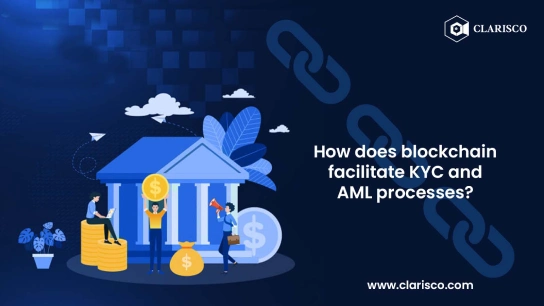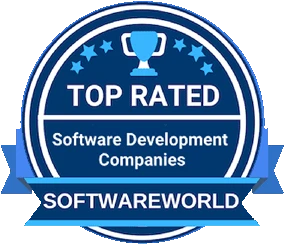-
AI
-
 Best AI Development Companies
Best AI Development Companies -
 AI Development Service
AI Development Service -
 AI as a Service
AI as a Service -
 Hire AI Engineers
Hire AI Engineers -
 Hire Prompt Engineers
Hire Prompt Engineers -
 Hire Chatgpt Developers
Hire Chatgpt Developers -
 Enterprise AI Development
Enterprise AI Development -
 Enterprise AI Chatbot Development
Enterprise AI Chatbot Development -
 Transformer Model Development
Transformer Model Development -
 Hire AI Developers
Hire AI Developers -
 AI & ML Development
AI & ML Development -
 AI Ecommerce Platform Development
AI Ecommerce Platform Development -
 AI NFT Minting Platform Development
AI NFT Minting Platform Development -
 AI App Development
AI App Development -
 AI Digital Twin Developments
AI Digital Twin Developments -
 AI In Banking
AI In Banking -
 AI In Education
AI In Education -
 AI In Cybersecurity
AI In Cybersecurity -
 AI In Fraud Detection
AI In Fraud Detection -
 AI in Smart Cities
AI in Smart Cities -
 AI In Supply Chain Management
AI In Supply Chain Management -
 AI In Risk Management
AI In Risk Management -
 AI In Customer Service
AI In Customer Service -
 AI In Data Integration
AI In Data Integration -
 AI in Fleet Management
AI in Fleet Management -
 AI In Inventory Management
AI In Inventory Management -
 AI In Marketing
AI In Marketing -
 AI In Media and Entertainment
AI In Media and Entertainment -
 AI In Sports
AI In Sports -
 AI In Travel and Tourism
AI In Travel and Tourism -
 AI In Human Resources
AI In Human Resources -
 AI In Social Media
AI In Social Media -
 AI In Pharma Industry
AI In Pharma Industry -
 AI In Food Industry
AI In Food Industry -
 AI In Retail Industry
AI In Retail Industry -
 AI In Real Estate
AI In Real Estate -
 AI In Telecommunication
AI In Telecommunication -
 AI In Quality Assurance
AI In Quality Assurance -
 AI In Automotive Industry
AI In Automotive Industry -
Bot
-
Blockchain
-
 Blockchain Development Company
Blockchain Development Company -
 Enterprise Blockchain Development
Enterprise Blockchain Development -
 White Label Blockchain Solutions
White Label Blockchain Solutions -
 Custom Blockchain On Avalanche
Custom Blockchain On Avalanche -
 Custom Blockchain On Polygon
Custom Blockchain On Polygon -
 Blockchain Consulting & Solutions
Blockchain Consulting & Solutions -
 Proof Of Reserve
Proof Of Reserve -
 Proof of Concept (POC) Development
Proof of Concept (POC) Development -
 Solana Blockchain Development
Solana Blockchain Development -
 Cardano Blockchain Development
Cardano Blockchain Development -
 Polygon Blockchain Development
Polygon Blockchain Development -
 Binance Smart Chain Development
Binance Smart Chain Development -
 EOS Blockchain Development
EOS Blockchain Development -
 TRON Blockchain Development
TRON Blockchain Development -
 Hire Blockchain Developers
Hire Blockchain Developers -
Crypto/Token
-
 Cryptocurrency Development
Cryptocurrency Development -
 Token Development
Token Development -
 Stable Coin Development
Stable Coin Development -
 AI Token Development
AI Token Development -
 AI Crypto Coin Development
AI Crypto Coin Development -
 Central Bank Digital Currency Development
Central Bank Digital Currency Development -
 Meme Coin Development
Meme Coin Development -
 Solana Token Developmen
Solana Token Developmen -
 BEP20 Token Development
BEP20 Token Development -
 Ethereum Token Development
Ethereum Token Development -
 Game Token Development
Game Token Development -
 ICO Token Development
ICO Token Development -
 ERC721 Token
ERC721 Token -
 Tron Token Development
Tron Token Development -
 Utility Token Development
Utility Token Development -
 ERC1155 Token
ERC1155 Token -
 Polygon Token Development
Polygon Token Development -
 DeFi Token Development
DeFi Token Development -
 ERC1400 Token Development
ERC1400 Token Development -
 Soulbound Token Development
Soulbound Token Development -
 Security Token Development
Security Token Development -
 TRC10, TRC20 TRC721
TRC10, TRC20 TRC721 -
 Avalanche Token Development
Avalanche Token Development -
 Token Generator Platform Development
Token Generator Platform Development -
 Cardano Token Development
Cardano Token Development -
 NFT Token Development
NFT Token Development -
 Mintable Token Development
Mintable Token Development -
 EIP3664 token Development
EIP3664 token Development -
 Metaverse Token Development
Metaverse Token Development -
 Equity Token Development
Equity Token Development -
 ERC20 Token Development
ERC20 Token Development -
Crypto Exchange
-
Crypto Wallet
-
Web 3
-
AR/VR/VFX
-
MLM
-
 Cryptocurrency MLM software
Cryptocurrency MLM software -
 Smart Contract MLM Software Development
Smart Contract MLM Software Development -
 TRON Smart Contract MLM Development
TRON Smart Contract MLM Development -
 Ethereum Smart Contract MLM Development
Ethereum Smart Contract MLM Development -
 Autopool MLM Software
Autopool MLM Software -
 Investment MLM Plan Software
Investment MLM Plan Software -
 Binary Plan MLM Software
Binary Plan MLM Software -
 Bitcoin MLM Software
Bitcoin MLM Software -
 Board MLM Plan Software
Board MLM Plan Software -
 Cryptocurrency MLM Plan Software
Cryptocurrency MLM Plan Software -
 Donation Plan MLM Software
Donation Plan MLM Software -
 Generation Plan MLM Software
Generation Plan MLM Software -
 Ecommerce MLM Software
Ecommerce MLM Software -
 Direct Selling MLM Software
Direct Selling MLM Software -
Game
-
 Game Development
Game Development -
 Sports Betting Dapp
Sports Betting Dapp -
 Android Game Development
Android Game Development -
 iOS Game Development
iOS Game Development -
 3D Game Development
3D Game Development -
 Metaverse Game Development
Metaverse Game Development -
 VR Game Development
VR Game Development -
 MMORPG Game Development
MMORPG Game Development -
 Unity Game Development
Unity Game Development -
 Unreal Engine Game Development
Unreal Engine Game Development -
 Mobile Game Development
Mobile Game Development -
 PC Game Development
PC Game Development -
 Blockchain Game Development
Blockchain Game Development -
 Web3 Game Development
Web3 Game Development -
 Move-to-Earn Game Development
Move-to-Earn Game Development -
 Play-to-Earn Game Development
Play-to-Earn Game Development -
 AI Game Development
AI Game Development -
 Build Box Game Development
Build Box Game Development -
 AR Game Development
AR Game Development -
 NFT Horse Gaming Development
NFT Horse Gaming Development -
 2D Game Development
2D Game Development -
 HTML5 Game Development
HTML5 Game Development -
 Social Network Game Development
Social Network Game Development -
 Gamification Services
Gamification Services -
 Game Prototyping
Game Prototyping -
 C++ Game Development
C++ Game Development -
 NFT Designing Services
NFT Designing Services -
 Console Game Development
Console Game Development -
 Casino Game Development
Casino Game Development -
 Blockchain Casino Game Development
Blockchain Casino Game Development -
 Solana Blockchain Game Development
Solana Blockchain Game Development -
 Initial Game Offering
Initial Game Offering -
 NFT Roleplay Game Development
NFT Roleplay Game Development -
 NFT Gaming Platform on BSC
NFT Gaming Platform on BSC -
 Sleep To Earn Game Development
Sleep To Earn Game Development -
Enterprises
-
 CRM Application Development
CRM Application Development -
 HRMS Application Development
HRMS Application Development -
 Asset Management Development
Asset Management Development -
 Time Tracking Application Development
Time Tracking Application Development -
 Inventory Management Application Development
Inventory Management Application Development -
 Booking Application Management
Booking Application Management -
 ERP Software Customization and Development
ERP Software Customization and Development -
 SAP Customization and Development
SAP Customization and Development -
 Project Management Application Development
Project Management Application Development -
 Performance Management Application Development
Performance Management Application Development -
 ITSM Application Development
ITSM Application Development -
 Customer Support Management Application Development
Customer Support Management Application Development -
Custom Software
-
Mobile App Development
-
Metaverse
-
NFT
-
Cloud
-
 Cloud Computing Solutions
Cloud Computing Solutions -
 Cloud Consulting Services
Cloud Consulting Services -
 Private Cloud Services
Private Cloud Services -
 Public Cloud Services
Public Cloud Services -
 Modern Operations
Modern Operations -
 Cloud Migration Services
Cloud Migration Services -
 Managed Cloud Services
Managed Cloud Services -
 Oracle cloud services
Oracle cloud services -
 AWS cloud services
AWS cloud services -
 Google cloud services
Google cloud services -
 Azure cloud services
Azure cloud services -
 Software as a Service (SaaS)
Software as a Service (SaaS) -
 Platform as a Service (PaaS)
Platform as a Service (PaaS) -
 Infrastructure as a Service (IaaS)
Infrastructure as a Service (IaaS) -
 Anything as a Service (XaaS)
Anything as a Service (XaaS) -
 Function as a Service (FaaS)
Function as a Service (FaaS) -
Banking Solutions
AI
Artificial Intelligence & ML
Generative AI
Industries
Artificial Intelligence & ML
Generative AI
Industries
Blockchain
Blockchain
Layer-1
Layer-2
ICO | STO
DeFi
Blockchain
Layer-1
Layer-2
DeFi
Crypto/Token
Crypto/Token
Tokenization
Trade Engine
Crypto/Token
Tokenization
Trade Engine
AR/VR/VFX
MLM
Services
MLM Plans
Services
MLM Plans
Game
Game Development
Game ART
Game Animation
Game Development
Game ART
Game Animation
Enterprises
Corporate Emerge
Industries Emerge
Corporate Emerge
Industries Emerge
Cloud
Banking Solutions
-
NFT
-
 NFT Marketplace Like Opensea
NFT Marketplace Like Opensea -
 NFT Marketplace Like Rarible
NFT Marketplace Like Rarible -
 NFT Marketplace Like Decentraland
NFT Marketplace Like Decentraland -
 NFT Marketplace Like Axie Infinity
NFT Marketplace Like Axie Infinity -
 NFT Marketplace Like Solanart
NFT Marketplace Like Solanart -
 NFT Marketplace Like CryptoPunk
NFT Marketplace Like CryptoPunk -
 NFT Marketplace Like NBA Top Shot
NFT Marketplace Like NBA Top Shot -
 NFT Marketplace Like Sorare
NFT Marketplace Like Sorare -
 NFT Marketplace Like SuperRare
NFT Marketplace Like SuperRare -
 NFT Marketplace Like Polkacity
NFT Marketplace Like Polkacity -
 NFT Marketplace Like Binance NFT
NFT Marketplace Like Binance NFT -
DeFi
-
Crypto Exchange
-
 Crypto Exchange Script
Crypto Exchange Script -
 Crypto Exchange Like Binance
Crypto Exchange Like Binance -
 Crypto Exchange Like Wazirx
Crypto Exchange Like Wazirx -
 Crypto Exchange Like Paxful
Crypto Exchange Like Paxful -
 Crypto Exchange Like Remitano
Crypto Exchange Like Remitano -
 Crypto Exchange Like Coinbase
Crypto Exchange Like Coinbase -
 Crypto Exchange Like Kucoin
Crypto Exchange Like Kucoin -
 Crypto Exchange Like Huobi
Crypto Exchange Like Huobi -
 Crypto Exchange Like Poloniex
Crypto Exchange Like Poloniex -
 Crypto Exchange Like Bithumb
Crypto Exchange Like Bithumb -
 Crypto Exchange Like Bitfinex
Crypto Exchange Like Bitfinex -
Crypto Wallet
-
Game
NFT Clone
DeFi Clone
Crypto Exchange Clone
Crypto Wallet Clone










